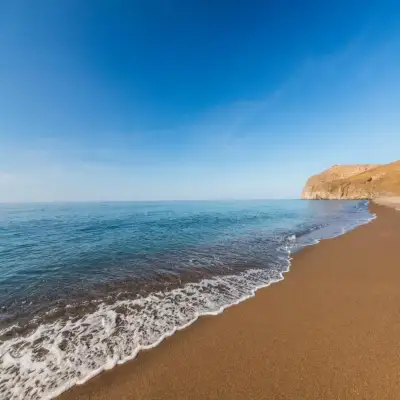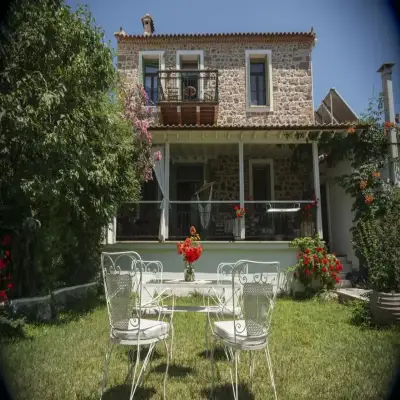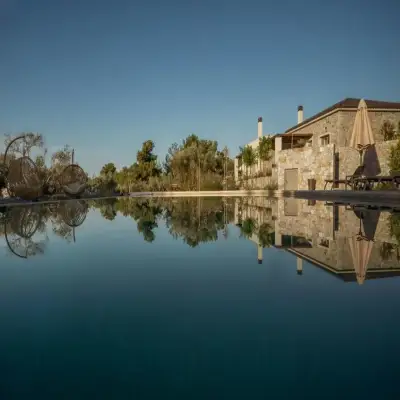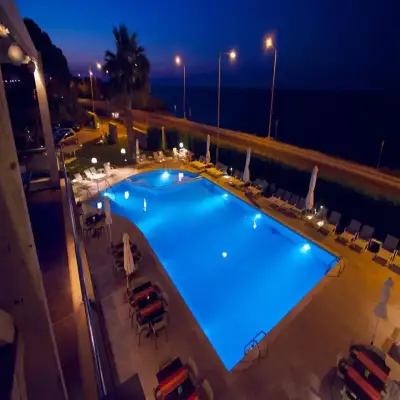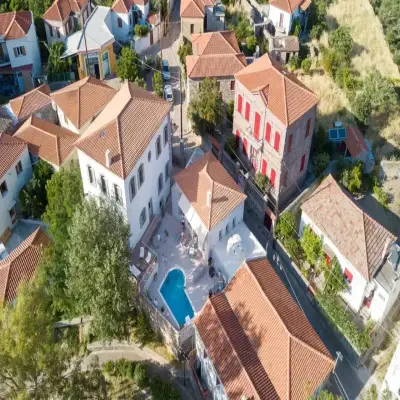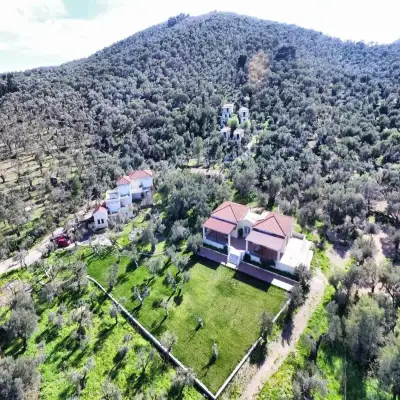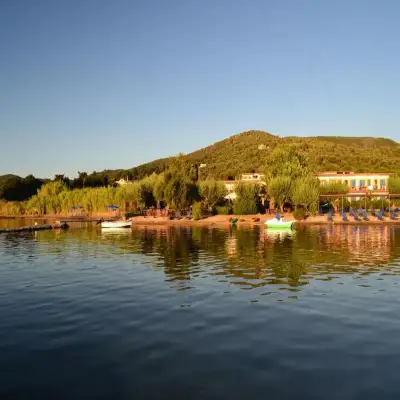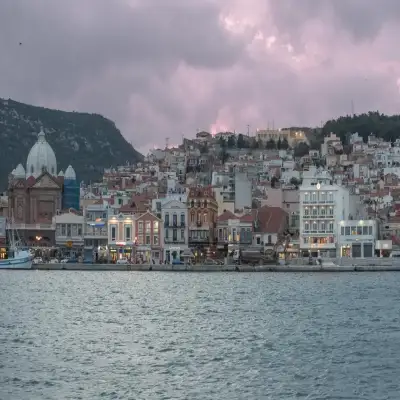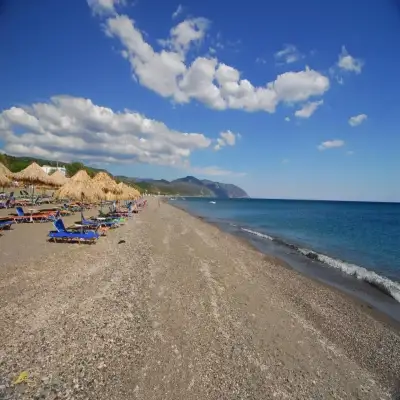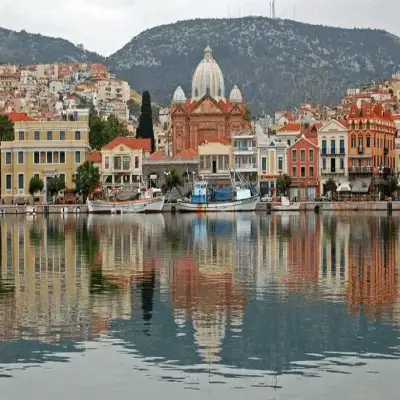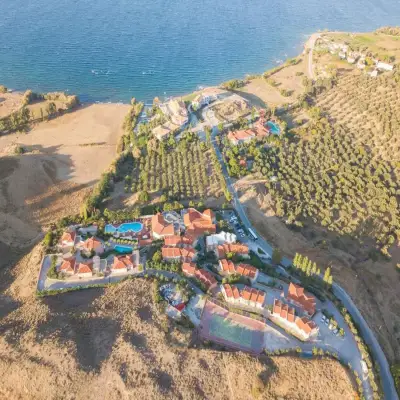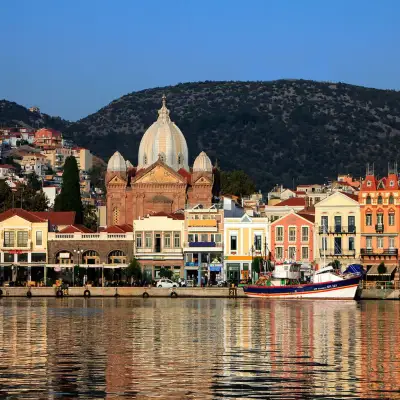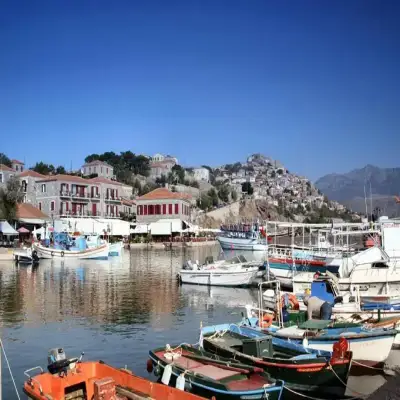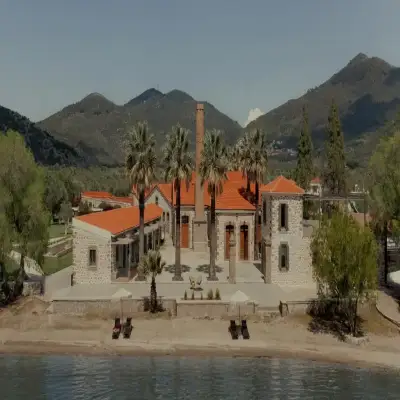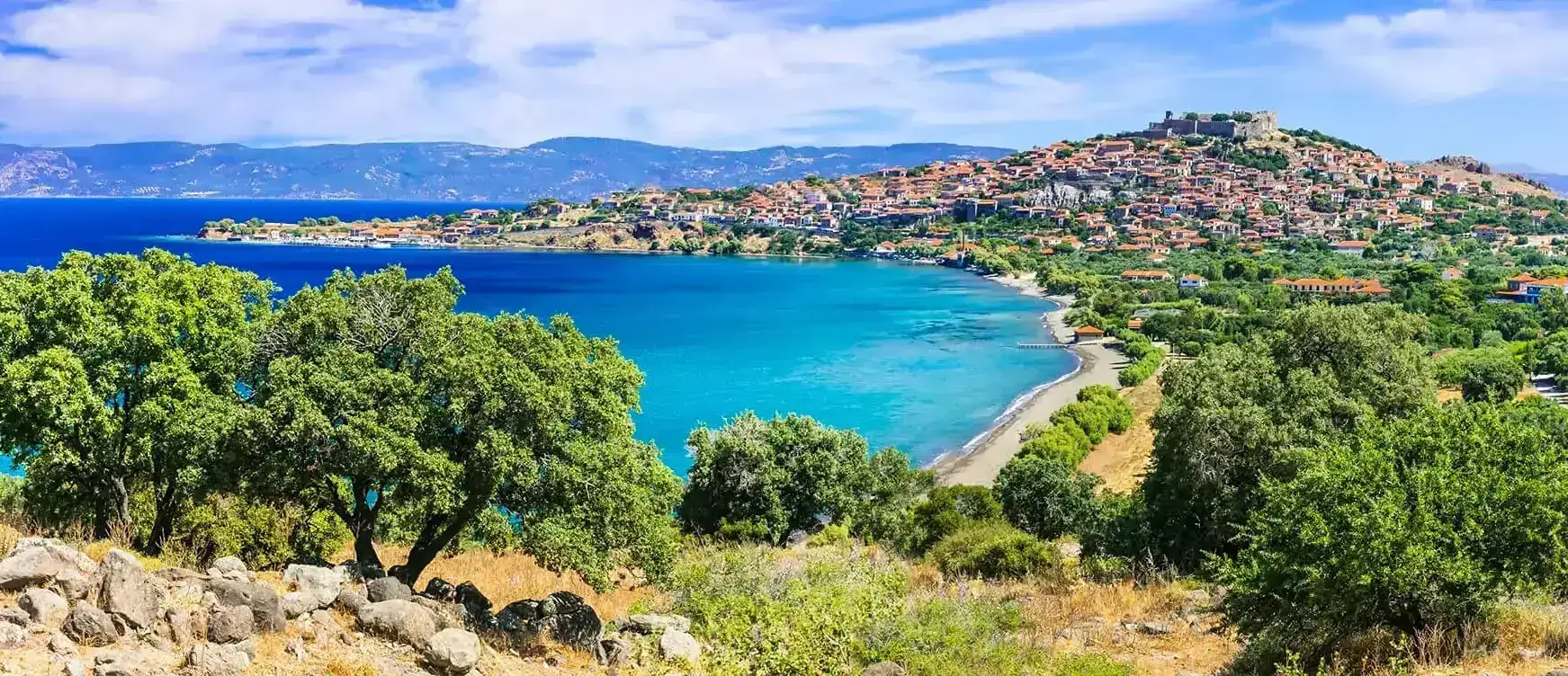
Small & Boutique Hotels in Lesvos Island
The island of Lesbos is a place that touches the hearts of those looking for tranquility, as if it was hidden away to “not be too well known”. You take a ferry from Ayvalık, but suddenly you feel like you have arrived in a completely different world. No flashy luxury hotels or crowds of tourists. Life here is slow, real and warm. You wake up early in the morning and drink your coffee by the sea with a croissant from the village bakery, get lost in the stone streets of Petra at noon and feel like you are in a Greek movie while watching the sunset in Molyvos in the afternoon. There are no giant portions or flashy presentations in the tavernas. Olive oil is from the village, cheese is homemade, ouzo is ice cold. No matter who you go with; your lover, friends or alone, Lesvos gives you that serenity that makes you feel good. No need to plan too much, it's perfect for a little wandering, a little sitting, a little stopping. Perhaps one of the simplest but most sincere islands of the Aegean.
History of Lesvos
Lesvos is a fascinating place, not only for its beautiful beaches and stone streets, but also for its history dating back thousands of years. Archaeological finds show that the first settlement here dates back to the late Neolithic period, almost 3300 BC. It is thought that the Pelasgians were the first to settle on the island, which is why it was once called “Pelasgia”. Today's name “Lesbos” comes from Lapithos mentioned in mythological narratives. The island, which is located at a very strategic point due to its location, has changed hands many times throughout history. From the Persians to the Romans, from Byzantium to the Ottomans, many civilizations left their mark on Lesvos. The island, which became Ottoman territory after the conquest of Mehmet the Conqueror, was annexed to Greece with the Treaty of Lausanne. During World War 2, it was under German occupation for a while. Today, Lesbos is a vibrant, peaceful and culturally rich Aegean island built on all these layers of history. Especially in the summer months, it makes a significant contribution both to the local economy of the island and to Greece.
Where and What to Eat in Lesvos?
When you go to Lesvos, you will encounter not only the sea and history, but also delicious Aegean flavors. The island's cuisine is quite rich, from olive oil dishes to seafood, local cheeses and traditional drinks. “Ouzo”, which is similar to raki and is unique to Greece, is drunk here in a different way and accompanied by delicious appetizers. The cheeses, which we can call the pride of Lesvos, are definitely worth trying. Gravier, cheddar, feta, anthotiro and mitzithra cheeses made from goat or sheep's milk are really memorable when served with island honey. You can't visit Lesvos without tasting the legendary Kalloni sardines. This sardine stands out especially in appetizers and is known worldwide.
What to Buy in Lesvos?
On the shopping side, Ermu Street is one of the most vibrant spots on the island. This street, where you can find many options from souvenirs to local products, is also a pleasant place to visit. If you like ouzo, you can try different brands and buy canned sardines or cheese varieties to accompany it. Kefalotiri cheese is very popular for breakfast or appetizers. Another remarkable detail in Lesvos is the variety of jams. They make jam from almost every fruit and even vegetable; it is a pleasure to try and buy. Of course, you can't return from Lesvos without buying olive oil, but make sure that it is local and unique to the island. Local wines, natural salts from the Gulf of Kaloni and various aromatic herbs are also worth adding to your shopping list.


